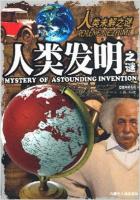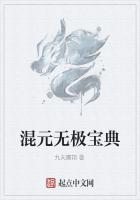Juliette Mendelssohn, living in her palatial villa with her rich banker husband, was our near neighbour。 She took a lively interest in my school, in spite of her renegade bourgeois friends。One day she invited all of us to dance before my adored idol—Eleanora Duse。
I presented Gordon Craig to Duse。 She was at once charmed and interested in his views of the theatre。After a few meetings of mutual enthusiasm, she invited us to come to Florence, and wished Craig to arrange a representation。So it was decided that Gordon Craig was to create the scenes for Ibsen's Rosmersholm, for Eleanora Duse, in Florence。We all took thetrain de luxe for Florence—Eleanora Duse, Craig, Marie Kist, the baby, and I。
I nursed the baby on the way, and my milk became some?what churned, so I had to supplement it with some prepared food in bottles。Nevertheless, I was supremely happy。The two most adored beings in the world for me had met;Craig would have his work, Duse a setting worthy of her genius。
Arriving in Florence, we put up at a small hotel near the Grand, where Eleanora was installed in the Royal suite。
The first discussions began—discussions in which I played the interpreter for Craig, who could understand neither French nor Italian, and Duse, who knew not aword of English。 I found myself between these two great geniuses, forces which, oddly enough, from the very beginning seemed in opposition to each other。I only hoped to make each happy and to please both。This I accomplished by a certain amount of misrepresentation。I hope some of the lies which I told in interpreting may be forgiven me, for they were in a holy cause。I wanted this great production to come of, and it would never have done so if I had really told Eleanora Duse what Craig said to her, and if I had repeated Duse's orders to Craig exactly as she expressed them。
In the frst scene in Rosmersholm I believe Ibsen describes the sitting?room as“comfortably furnished in old?fashioned style。”But Craig had been pleased to see the interior of a great Egyptian temple, with enormously high ceiling, extending upward to the skies, with walls receding into the distance。Only, unlike an Egyptian temple, at the far end there was a great, square window。In Ibsen’s description, the window looks out into an avenue of old trees leading to a courtyard。Craig had been pleased to see this in dimensions of ten metres by twelve。It looked out upon a faming landscape of yellows, reds, and greens, which might have been some scene in Morocco。It could not possibly have been an old?fashioned courtyard。
Eleanora, looking rather disconcerted, said,“I see this as a small window。 It cannot possibly be a large one。”
To which Craig thundered in English,“Tell her I won't have any damned woman interfering with my work!”
Which I discreetly translated to Eleanora,“He says he admires your opinions and will do everything to please you。”
Then, turning to Craig, I again diplomatically translated Duse's objections as,“Eleanora Duse says, as you are a great genius, she will not make any suggestions on your sketches, but will pass them as they are。”
These conversations sometimes went on for hours。 Many times they occurred during the feeding?time for the baby;nevertheless, I was always on hand to play the important r?le of pacifying interpreter。I often sufered agonies when it was past milking?time, while I explained to those artists what they did not say to each other!I was at the time in a certain tired state。My health was run down。These wearing interviews turned my period of convalescence into a very painful one。But in view of the great artistic event which was to take place, the production of Rosmersholm, with Craig creating the scene for Eleanora Duse, I felt that no sacrifce on my part was too much。
Then Craig immured himself in the theatre, where he began, with dozens of huge pots of paint before him, and a big brush, to paint the scene actually himself。 For he could find no Italian workmen who understood just what he meant。He could not find the proper canvas, so he took sacking and had it sewed together。For days, a chorus of old Italian women sat upon the stage and stitched sacking。Young Italian painters rushed about the stage trying to carry out orders given by Craig, while Craig, with his longhair tossed about, shouted to them, dipped the brushes into the paint?boxes, mounted ladders in perilous positions;stayed in the theatre all day and almost all night。He did not come out even to eat。If I had not brought him a little luncheon?basket at lunch?time, he would not have had anything to eat at all。
One command he gave,“Keep Duse out of the theatre。 Do not let her come here。If she does, I will take the train and go away。”
Whereas Duse was filled with desire to see what was going on。 It was my task, without offending her, to keep her from going to the theatre。I used to take her for long walks in the gardens, where the lovely statues and exquisite fowers calmed her nerves。
I shall never forget the picture of Duse, walking through those gardens。 She did not look like a woman of this world, but rather like some divine image of Petrarch or Dante, who found herself upon the terrestrial sphere by some mischance。All the populace made way for her, and stared at us with respectful but curious eyes。Duse did not like to be stared at by the public。She took all the little by?paths and small alleys, to avoid the popular gaze。Nor had she any love for poor humanity as I had。She considered most of these people as canaille, and used to speak of them as such。
This was due mostly to her over?sensitive nature, rather than anything else。She thought they were critical of her。When Duse came into personal contact with people, no one could be more sympathetic and kindly。
I will always remember those walks in the gardens;the poplar?trees, the magnificent head of Eleanora Duse, for, as soon as we found ourselves alone, she would pull off her hat and let her raven locks, just turning grey, free to the breeze。Her wonderfully intellectual forehead and her marvellous eyes—I shall never forget them。Sorrowful eyes, yet, when this face lit up in enthusiasm, I have never seen a more beatific expression of joy in any human face or in any work of art!
The décors for Rosmersholm were progressing。Each time I went to the theatre to take Craig his luncheon or his dinner, I found him in a state bordering between anger and frantic joy。One hour he believed it would be the greatest vision the artistic world would see。The next, he would cry that he could get nothing in this country—no paints, no good workmen;that he must do everything himself。
The hour approached when Eleanora should see the completed scene—I had especially kept her away by such manoeuvres as I could invent。 When the day arrived, I called for her at the appointed hour and took her to the theatre。She was in a state of intense nervous excitement which, I feared, might at any moment break out, like a stormy day, into a violent tempest。She met me in the lobby of her hotel。She was enveloped in a big brown fur coat, with a brown fur cap which resembled that of a Russian Cossack。It was placed at an angle over her eyes。For, although Duse at times in her life, by the advice of her kind friends, patronised the fashionable dressmakers, she could never wear a modishdress or look in any waychic。Her dress was always up on one side and down on the other。Her hat was always crooked。No matter how costly her garments, she never seemed to wear them, but appeared to condescend to carry them on her。
On our way to the theatre, I was so wrought up that I could hardly speak。 Again, with great diplomacy, I kept her from rushing to the stage door, but I had the front door of the theatre especially opened and led her into a box。There was a long wait, in which I sufered untold agonies, as she kept saying,“Will my window be just as I see it?Where is this scene?”
I held her hand tightly, kept patting it and saying:“In a little while—You will soon see。 Have patience。”But I was overcome with fear at the thought of that little window, which had now taken on the most gigantic dimensions imaginable。
From time to time one heard Craig's voice, in exasperated tones, now trying to speak in Italian, now just saying,“Damn!Damn!Why didn't you put this here?Why don't you do what I tell you?”Then silence again。
Finally, after what seemed hours of waiting, when I felt Eleanora's rising temper was ready to break out at any moment, the curtain slowly rose。
Oh, how can I describe what appeared before our astonished, enraptured eyes?Did I speak of an Egyptian temple?No Egyptian temple has ever revealed such beauty。 No Gothic cathedral, no Athenian palace。Never have I seen such a vision of loveliness。Through vast bluespaces, celestial harmonies, mounting lines, colossal heights, one's soul was drawn toward the light of this great window which showed beyond, no little avenue but the infinite universe。Within these blue spaces was all the thought, the meditation, the earthly sorrow of man。Beyond the window was all the ecstasy, the joy, the miracle of his imagination。Was this the living?room of Rosmersholm?I do not know what Ibsen would have thought。Probably he would have been as we were—speechless, carried away。
Eleanora's hand grasped mine。 I felt her arms around me。She had me in a stong embrace。I saw the tears were running down her beautiful face。For some time we sat, clutched in one another's arms, silent—Eleanora from her admiration and joy of art, and I from the great relief I found when she was pleased, after all my previous misgivings。So we remained。Then she took me by the hand and dragged me from the box, striding with her long steps through the dark corridor up to the stage。She stood upon the stage, and, in that voice which was Duse, called:“Gordon Craig!Come here!”
Craig came from the side wing, looking as shy as a boy。 Duse enveloped him in her arms and then, from her lips, came such a string of Italian words of adulation that I could not translate them fast enough for Craig。They fowed from her Lips like water streaming from a fountain。
Craig did not weep from emotion as we did, but he re?mained for a long time silent, which, on his part, was a sign of great feeling。
Duse then called all the company to her。 They had been waiting unconcernedly behind the stage。She made them an impassioned speech in this wise:
“It is my destiny to have found this great genius, Gordon Craig。 I now intend to spend the rest of my career(sempre, sempre)devoting myself only to showing the world his great work。”
She then went on with renewed eloquence to denounce the whole modern trend of the theatre, all modern scenery, the modern conception of an actor's life and vocation。
Holding the hand of Craig all the time she spoke, and turning again and again to him, she told of his genius and of the new great resurrection of the theatre。“Only through Gordon Craig,”she said over and over again,“will we poor actors find release from this monstrosity, this charnel?house, which is the theatre of today!”
Imagine my joy at all this。 I was then young and inexperienced。I believed, alas, that, in moments of great enthusiasm, people actually meant all they said。I pictured Eleanora Duse placing her splendid genius at the service of my great Craig's Art。I pictured the future as one untold triumph for Craig, and splendour for the Art of the theatre。I did not count, alas, upon the frailty of a woman's enthusiasm。And Eleanora was only a woman, with all her genius—as was proved later。
The first evening of Rosmersholm an immense, expectant public flled the theatre in Florence。 When the curtain rose, there was one gasp of admiration。The resultcould not have been otherwise。That single performance of Rosmersholm is remembered in Florence to this day by connoisseurs of Art。
Duse, with her marvellous instinct, had donned a gown of white, with great wide sleeves that fell at her sides。 When she appeared, she looked less like Rebecca West than a Delphic sibyl。With her unerring genius she adapted herself to every great line and to each shaft of light which enveloped her。She changed all her gestures and movements。She moved in the scene like some prophetess announcing great tidings。
But when the other actors came on—Rosmer, for instance, who put his hands in his pockets—they seemed to be like stage hands who had walked on by mistake。 It was positively painful。Only the man who played Brendel fitted perfectly with the marvellous surroundings when he declaimed the words:“When I have been wrapped in a haze of golden dreams that have descended on me;when new, intoxicating momentous thoughts have had their birth in my mind, and I have been fanned by the beat of their wings as they bore me aloft—at such moments I have transformed them into poetry, into visions, into pictures。”
We returned from this performance in high spirits。 Craig was radiant with joy。He saw his future before him, a series of great works all devoted to Eleanora Duse, of whom he now spoke with praise as great as was his indignation before。Alas, for human frailty。This was to be the one and onlynight of Duse's genius displayed in Craig's setting。She was playing a repertory programme。Each night a diferent play appeared。
After all this excitement was over I called at my bank one morning to fnd my account completely depleted。 The coming of the baby, the needs of the Grünewald School, our journey to Florence, all this had exhausted my reserve funds。It was absolutely necessary to think of some way of replenishing the coffers, and there arrived a timely invitation from an impresario in St。Petersburg, asking if I were ready to dance again, and ofering me a contract for a tour in Russia。
So I left Florence, giving the baby to Marie Kist to take care of, and leaving Craig in the care of Eleanora, while I took the express train via Switzerland and Berlin to St。 Petersburg。As you can imagine, it was a very sad journey for me。The first separation from my baby, and also the separation from Craig and Duse, were very painful。Also my health was in a precarious condition, and, as the baby was only half?weaned, it was necessary to have the milk drawn from my breasts with a little machine。This was a ghastly experience for me, and caused me many tears。
Farther and farther north the train sped, until I arrived again in those plains of snow and forest, which now seemed more desolate than ever。 Also, as I had been too intent upon Duse and Craig to think of my own Art, I was not in the least prepared for the ordeal of a tour。However, the good Russian audience received me with its usualenthusiasm, and overlooked any shortcomings there may have been in the performance。Only I remember that often, when I danced, the milk overflowed, running down my tunic, and causing me much embarrassment。How difficult it is for a woman to have a career!
Of this tour in Russia I do not remember very much。 Needless to say, my heart was pulling me back to Florence by all its strings。Therefore I cut the tour as short as possible and accepted an engagement to tour Holland, as it would bring me a little nearer to my school and to those I so longed to see。
The first night I appeared on the stage in Amsterdam, a strange illness overcame me。 I think it had something to do with the milk—what they call milk fever—and after me performance I fell prone upon the stage and had to be carried back to the hotel。There for days and weeks I lay in a darkened room packed in ice?bags。They called it neuritis, a disease for which no doctor had been able to find a cure。For weeks I could eat nothing, and was fed on a little milk with opium, and went from one delirium into another, and finally into unconscious sleep。
Craig came flying up from Florence, and was devotion itself。 He stayed with me for three or four weeks and helped to nurse me, until one day he received a telegram from Eleanora,“I am giving Rosmersholm in Nice。Scene unsatisfactory。Come at once。”
I was partly convalescent at the time, so he left for Nice, but directly I saw this telegram I had a terrible premonitionof what would happen to those two when I was not there to interpret, and to smooth over their diferences。
Craig appeared one morning in the old Nice Casino, which was horrible, to fnd that, without the knowledge of Eleanora, they had cut his scenery in two。 Naturally when he saw his work of art, his masterpiece, his child that he had laboured to bring forth with such energy in Florence, thus amputated, massacred before his eyes, Craig few into one of those terrible rages of which he was at times the victim, and, what was worse, thus addressed the form of Eleanora, who was at that time standing on the stage:
“What have you done?”he stormed at her。“You have ruined my work。 You have destroyed my Art!You, from whom I expected so much。”
He went on and on mercilessly, until Eleanora, who certainly was not used to being spoken to in this manner, became furious。 As she told me later:“I have never seen such a man。I have never been talked to like this。He towered more than six feet, arms folded in Britannic furor, saying fearful things。No one has ever treated me so。Naturally I could not stand it。I pointed to the door and said,‘Go。I never want to see you again。'”
And that was the end of her intention to devote her entire career to the genius of Gordon Craig。
I arrived in Nice so weak that I had to be carried from the train。 It was the first night of the Carnival, and on theway to the hotel my open carriage was assailed by a band of pierrot masks of all descriptions, whose grimaces seemed to me like the Dance Macabre before ultimate death。
In a hotel near to mine, Eleanora Duse also lay ill。 She sent me many tender messages。She also referred her doctor, Emil Bosson, to me, and he not only tended me with great devotion but, from that time, became one of my greatest friends for life。My convalescence was long, and I was entwined in a network of pain。
My mother joined me, and also my faithful friend, Marie Kist, with the baby。 The baby was fne and strong and each day grew more beautiful。We moved to Mont Boron, where we looked over the sea on one side and, on the other, to the top of the mountain where Zarathrusta had meditated with his serpent and his eagle。On the sunny terrace where we lived I gradually came back to life。But it was a life more heavily burdened with financial difficulties than ever, and to meet them I returned, as soon as I was able, to my Holland tour, but I still felt very weak and despondent。
I adored Craig—I loved him with all the ardour of my artist soul—but I realised that our separation was inevitable。 Yet I had arrived at that frenzied state when I could no longer live with him or without him。To live with him was to renounce my Art, my personality, nay, perhaps my life, my reason itself。To live without him was to be in a continual state of depression, and tortured by jealousy, for which, alas!It now seemed that I had good cause。Visions of Craig in all his beauty in the arms of other womenhaunted me at night, until I could no longer sleep。Visions of Craig explaining his Art to women who gazed at him with adoring eyes—visions of Craig being pleased with other women—looking at them with that winning smile of his the smile of Ellen Terry—taking an interest in them, caressing them—saying to himself,“This woman pleases me。After all, Isadora is impossible。”
All this drove me to fits of alternate fury and despair。 I could not work, I could not dance。I did not care at all whether the public liked it or not。
I realised that this state of things must cease。 Either Craig's Art or mine—and to give up my Art I knew to be impossible:I should pine away—I should die from chagrin。I must find a remedy, and I thought of the wisdom of the Homeopaths。And, as everything that we wish for very much comes, the remedy came。
He entered one afternoon:fair, debonair, young, blond, perfectly dressed。 He said:“My friends call me Pim。”
I said,“Pim!What a charming name。 Are you an artist?”
“Oh, no!”he disclaimed, as if I had accused him of some crime。
Then what have you?A Great Idea?”
“Oh, dear, no。 I have no ideas at all,”he said。
“But a purpose in life?”
“Not any。”
“But what do you do?”
“Nothing。”
“But you must do something。”
“Well,”he replied refectively,“I have a lovely collection of eighteenth century snuf?boxes。”
Here was my remedy。 I had signed a contract to tour Russia—a long, arduous tournée, not only through North Russia, but South Russia and the Caucasus as well, and I dreaded the long journeys alone。
“Will you come with me to Russia, Pim?”
“Oh, I should just love to,”he replied quickly,“Only mere is my mother。 I might persuade her, but there is also someone”—and Pim blushed—“someone who loves me very much—who would, perhaps, not consent to let me go。”
“But we might go clandestinely”;and so it was planned that after my last performance in Amsterdam an auto should meet us at the stage door and carry us away into the country。 We had arranged for my maid to take the luggage by the express, which we were to pick up at the next station outside Amsterdam。
It was a very foggy, cold night, and over the felds hung a thick mist。 The chaufeur did not wish to go fast, as the road ran by a canal。
“It is very dangerous,”he cautioned, and crept along。
But this danger was nothing to that of being followed, and suddenly Pim looked behind and exclaimed:
“My God, she is pursuing us!”
I needed no explanation。'
“She probably has a pistol,”said Pim。
“Schnell, schneller!”I said to the chaufeur, but he only pointed to where a gleam through the fog showed thewaters of the canal。 It was very romantic, but finally he outwitted the pursuers'car and we arrived at the station and stopped at the hotel。
It was two o'clock in the morning。 The old night porter thrust his lantern into our faces。
“Ein zimmer,”we said in chorus。
“Ein zimmer—nein, nein。 Sind sie verheirathet?”
“Ja, ja,”we replied。
“Oh, nein, nein,”he grunted。“Sie sind nicht verheirathet。 Ich weiss。Sie sehen aus viel zu glücklich”;and in spite of our protests he separated us in two rooms at either end of a long corridor, and took a malign delight in sitting up all night between the two, with his lantern on his knees, and, each time that Pim or I put out a head, he raised the lantern and said:
“Nein, nein:nicht verheirathet—nicht m?glich—nein, nein。”
In the morning, a trife tired after this game of hide and seek, we took the Rapide to Petersburg, and I have never made a pleasanter journey。
When we arrived at Petersburg, I was perplexed when the baggage porter demanded eighteen trunks from the train, all marked with Pim's initials。
“But what is this?”I gasped。
“Oh, that is only my luggage,”said Pim。“This for my neckties;these two for my lingerie;these for my complets;and these for my boots。 Then this one contains my extra furtrimmed waistcoats—so appropriate for Russia。”
In the H?tel de l’Europe was a broad staircase, and down this staircase Pim would come fying every hour, dressed in a diferent coloured complet, wearing a diferent cravat—to the admiration of all beholders。For he was always exquisitely dressed, and was, in fact, the criterion of fashion of The Hague。The great Dutch painter。Van Vley, was painting his portrait, with a background of tulips—golden tulips—purple tulips—rose?coloured tulips—and, indeed, his whole appearance had the fresh and attractive look of a bed of spring tulips—his golden hair like a bed of golden tulips;his lips like rose tulips;and when he embraced me I felt as though I were foating away on a bed of tulips in the spring of Holland。
Pim was pretty—blond, blue?eyed—with no intellectual complex。His love exemplified to me Oscar Wilde’s saying,“Better the pleasure that lasteth for the moment, than the sorrow which endureth for ever。”Pim gave the pleasure which lasteth for a moment。Heretofore love had brought me Romance, Ideal and Sufering。Pim brought me pleasure—just pure delightful pleasure—and at a moment when I most needed it, for without his ministrations I might have sunk into a hopeless neurasthenic。The presence of Pim gave me new life, new vitality。Perhaps for the first time I knew the joy of being simply, frivolously young。He laughed at everything, skipped and danced about。I forgot my chagrin, and lived in the moment and was careless and happy。As a consequence, my performances bubbled over with renewed vitality and joy。
It was at this time that I composed the“Moment Musicale,”which had such a success with the Russians that I had to repeat it five or six times each evening。 The“Moment Musicale”was Pim's dance—the“pleasure of the moment”—the Musical Moment。















